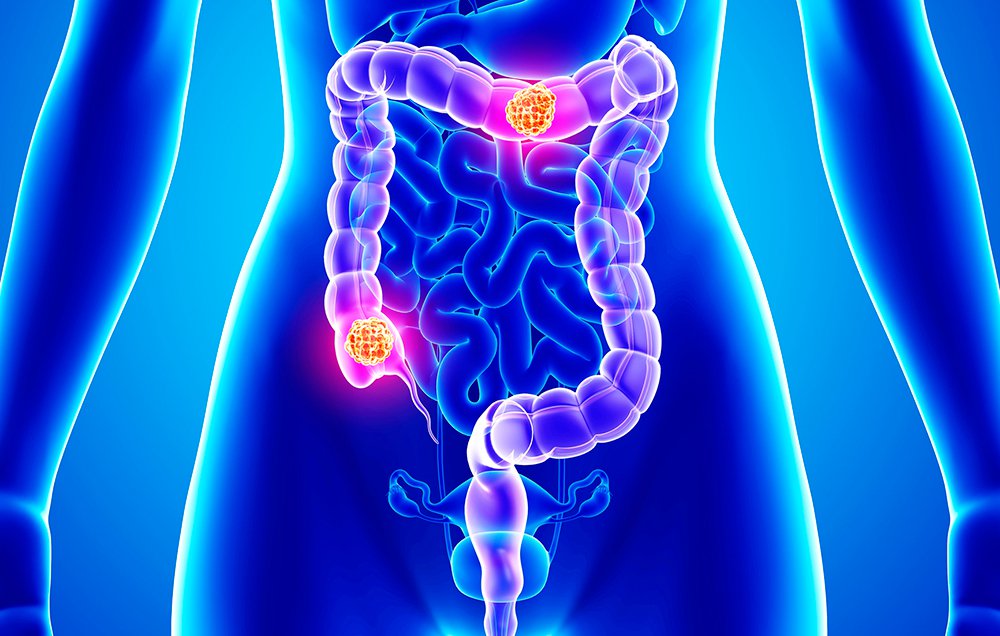A comprehensive analysis of more than 100,000 colorectal cancer (CRC) cases has identified upwards of 100 new genetic risk factors strongly linked with the disease.
Findings from the study, which was led by researchers at the Fred Hutchinson Cancer Center, in association with 200 scientific collaborators worldwide, could help clinicians better determine which individuals may be at the highest risk for colorectal cancer so that they can receive early screening. The results may also help to identify who may benefit from preventive chemotherapy or other proactive treatments.
“This is the largest, most comprehensive study to date of common genetic risk factors for colorectal cancer,” said Ulrike “Riki” Peters, PhD, a molecular and genetic epidemiologist at Fred Hutch. “We’re excited about our study’s discoveries, including the addition of 100-plus genetic risk variants for this severe disease.” Peters is corresponding lead author of the study, which is published in Nature Genetics, and titled, “Deciphering colorectal cancer genetics through multi-omic analysis of 100,204 cases and 154,587 controls of European and east Asian ancestries.” In their paper, the team concluded, “These data substantially expand our existing knowledge about the impact of common genetic variation on the heritable risk of CRC.”
CRC affects approximately 1.9 million people worldwide annually, and has a strong heritable basis, the authors wrote. “Our understanding of CRC genetics has been informed by genome-wide association studies (GWASs), which have so far identified 150 statistically independent risk variants.” Peters’ research is focused on the genetic and environmental risk factors for colorectal cancer, as well as on the impact of race and ethnicity on underlying genetic risk factors for common, complex diseases. The team’s previous work had identified about 140 genetic markers for colorectal cancer.
For the newly reported study, the researchers conducted a meta-analysis of 100,204 colorectal cancer cases and 154,587 control individuals without the disease. Both groups were of European or Asian ancestry. “We complemented GWASs with transcriptome- and methylome-wide association analyses (TWASs and MWASs),” the investigators further noted. Mulit-omics is a biological analysis approach that combines multiple large-scale biological data sets “omes,” such as the genome, proteome, and transcriptome.
The study’s initial findings identified 205 independent risk associations for colorectal cancer, of which 50 had not been previously reported. The TWASs and MWASs revealed an additional 53 gene variants linked to the disease. “Our study is twice as large as previous CRC GWASs and also includes participants of both European and east Asian ancestries, demonstrating that most loci are shared across these ancestral groups,” they wrote. “This increased power for GWASs, coupled with complementary analyses, including TWASs and MWASs, identified 103 previously unreported risk associations and identified 155 effector genes.”
Many of these high-confidence effector genes functionally linked to CRC risk had no previously established role in CRC. “These have multiple different functions and specifically indicate that variation in normal colorectal homeostasis, proliferation, cell adhesion, migration, immunity, and microbial interactions determines CRC risk,” the scientists commented. Co-first author Li Hsu, PhD, a biostatistician at Fred Hutch, added, “Our findings provide new insights into colorectal cancer and substantially expand our knowledge of the role gene variation plays in inherited colorectal cancer.”
This study’s findings in addition validated more commonly known risk factors for CRC, including insulin resistance, smoking, and obesity, which have been observed and reported in previous epidemiological studies.
Colorectal cancer is a leading cause of death around the globe. “Colorectal cancer is a serious disease, but it is preventable and can be successfully treated if detected early,” said William Grady, MD, director of the GI Cancer Prevention Program Clinic and a professor at Fred Hutch. “This study has the potential to pave the way for better screening and prevention, allowing us to improve our current ways of determining who is at higher risk.
”Germline genetic risks or gene mutations—those that you inherit from your biological parents—play a vital role in cancer risk and susceptibility. “Knowing these hereditary factors and which groups are at greatest risk from them can guide clinicians in recommending preventive measures and more frequent screenings which can lead to earlier diagnosis and treatment and better survival outcomes for patients,” pointed out co-first author Minta Thomas, PhD, a staff scientist at the Fred Hutch working with Hsu and Peters.
According to the study authors, their findings demonstrate the power of big data—combining such a large-scale study with complex, detailed analysis using multi-omics, to gain additional insights into the underlying biology of colorectal cancer. The Fred Hutch researchers and collaborators plan to use the results to develop tests based on germline DNA that can categorize individuals at high genetic risk for colorectal cancer, and those who may have only a minimal likelihood of developing the disease.
A longer-term goal is to combine genetic risk data with other risk factors—environmental, dietary, and behavioral (such as smoking)—to create multifaceted polygenic risk scores that more precisely pinpoint a person’s colorectal cancer risk. The authors concluded in their paper, “Overall, our findings demonstrate the power of multi-omics to provide new insights into the biological basis of CRC, including both the identification of candidate effector genes and the support for previously unsuspected functional mechanisms. Importantly, several of the genes and pathways we have identified are potential targets for CRC treatment or chemoprevention.”







